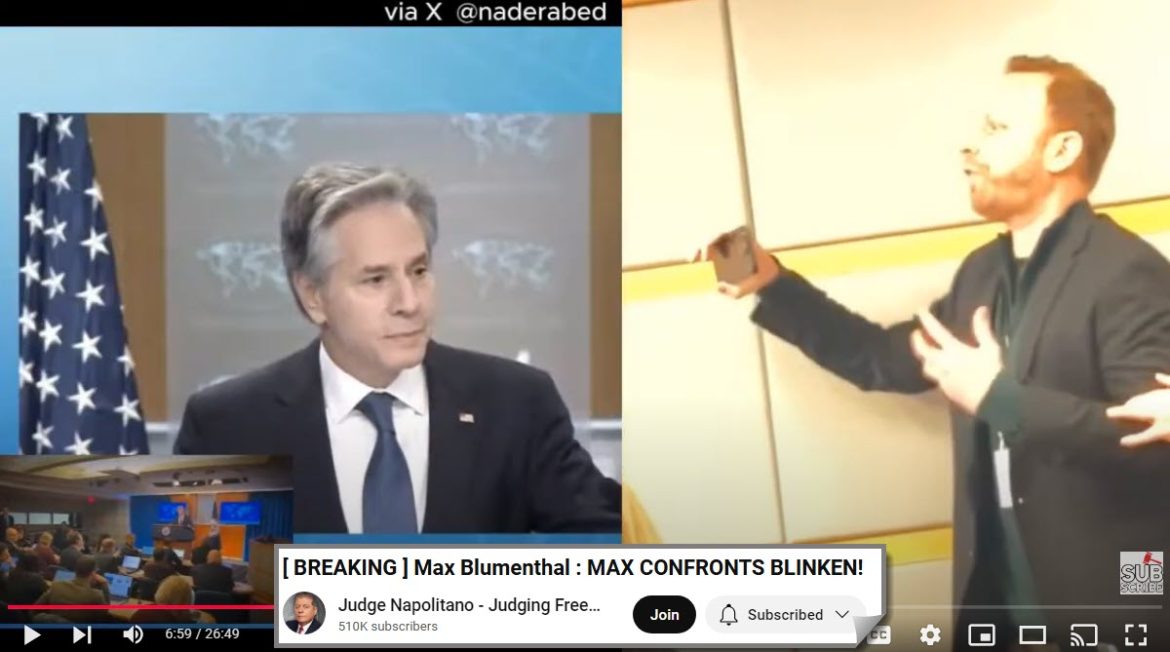In an era where information is abundant yet often manipulated, the role of journalism has never been more critical. Journalists serve as the watchdogs of democracy, tasked with holding those in power accountable for their actions. This responsibility is especially pronounced in matters of foreign policy, where decisions can lead to significant human suffering. The recent confrontations between journalists and government officials highlight the necessity of tough questioning and the courage required to challenge narratives that may be misleading or harmful.
Foreign policy decisions made by powerful nations can have devastating consequences for millions of people. The ongoing conflict in the Middle East, particularly between Israel and Palestine, serves as a stark reminder of this reality. The loss of life, destruction of communities, and the psychological toll on civilians are often sidelined in political discourse. Journalists who dare to bring these issues to light play a crucial role in ensuring that the human cost of such policies is not forgotten. They remind the public and policymakers alike that behind every statistic is a human being with a story.
The relationship between government officials and the media is complex and often fraught with tension. Officials may seek to control the narrative, while journalists strive to uncover the truth. This dynamic was evident in recent press conferences where journalists faced pushback for asking difficult questions. The attempts to silence dissenting voices in the media raise important questions about freedom of the press and the extent to which officials are willing to go to protect their interests. The courage displayed by journalists in these situations is commendable and necessary for a healthy democracy.
In today’s digital age, social media has transformed the landscape of journalism. It provides a platform for journalists to share their work and engage with the public directly. However, it also presents challenges, such as the spread of misinformation and the potential for harassment. Journalists must navigate these complexities while remaining committed to their mission of truth-telling. The ability to reach a global audience instantly can amplify their voices, but it also requires them to be vigilant about the accuracy and integrity of their reporting.
Reporting on conflict zones poses unique ethical dilemmas for journalists. They must balance the need to inform the public with the responsibility to protect vulnerable populations. The decision to publish graphic images or detailed accounts of violence can have profound implications. Journalists must consider the potential impact of their work on those directly affected by the conflict. Ethical reporting requires sensitivity, accuracy, and a commitment to highlighting the voices of those who are often marginalized in mainstream narratives.
As society becomes increasingly polarized, the future of journalism faces significant challenges. The rise of partisan media and the erosion of trust in traditional news sources complicate the landscape. Journalists must work harder than ever to maintain credibility and provide balanced reporting. This requires a commitment to transparency, fact-checking, and a willingness to engage with diverse perspectives. The survival of journalism as a vital institution depends on its ability to adapt to these changes while remaining steadfast in its mission to inform the public.
Personal narratives can be a powerful tool in journalism, allowing audiences to connect with stories on a human level. By sharing the experiences of individuals affected by conflict, journalists can evoke empathy and understanding. These narratives can challenge dominant narratives and provide a more nuanced view of complex issues. The ability to humanize statistics and abstract concepts is essential in fostering a deeper understanding of the consequences of policy decisions.
Whistleblowers play a crucial role in exposing wrongdoing within governments and organizations. Their courage to come forward often sheds light on issues that would otherwise remain hidden. In the context of foreign policy, whistleblowers can provide invaluable insights into the decision-making processes and the implications of those decisions. Protecting whistleblowers and ensuring they can speak out without fear of retribution is essential for a functioning democracy.
The line between journalism and activism can sometimes blur, especially when journalists advocate for social justice and human rights. While some argue that journalists should remain neutral, others contend that it is their duty to speak out against injustice. This intersection raises important questions about the role of journalists in society and the responsibilities they hold. Engaging in activism can enhance journalistic work by providing a deeper understanding of the issues at hand, but it also requires careful navigation to maintain credibility.
The fight for truth and justice in journalism is ongoing and fraught with challenges. As journalists continue to confront power and hold leaders accountable, they must remain committed to their ethical responsibilities. The courage to ask tough questions, report on the human cost of policies, and amplify marginalized voices is essential for a healthy democracy. In a world where misinformation is rampant, the role of journalism as a beacon of truth is more important than ever.



